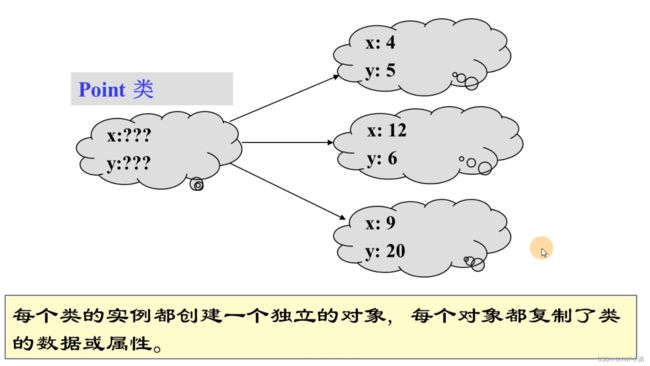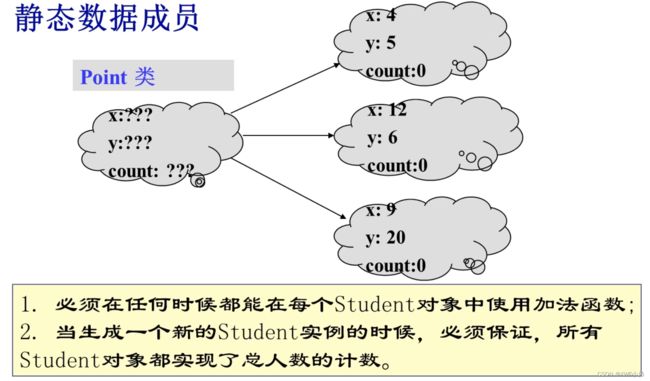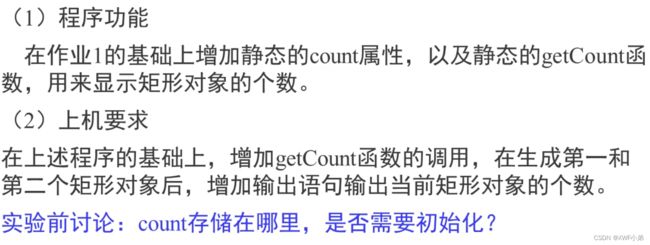极简c++(4)类的静态成员
静态数据成员
#include#include#include#include静态变量一般只用于“统计对象个数”这种必须多个对象共享的场合!
静态成员函数
#include思考:为什么在静态函数中只能包含静态变量?
作业
#include//Rectangle.h
#ifndef RECTANGLE_H
#define RECTANGLE_H
class Rectangle{
private:
int width, height;
static int count;
public:
Rectangle();//无参构造函数
Rectangle(int newwidth,int newheight);//有参构造函数
~Rectangle();
static void getCount(){};
//内联函数,设置属性的值,一般只有这种很短的函数才可以写在定义中
//this 表示的是当前对象的意思
void setWidth(int width);
void setHeight(int height);
//获得属性的值
int getWidth();
int getHeight();
int getArea();
int getPerimeter();
};
#endif
//Rectangle.cpp
#include "Rectangle.h"
#include //job1.cpp
#include "Rectangle.h"
#include 






